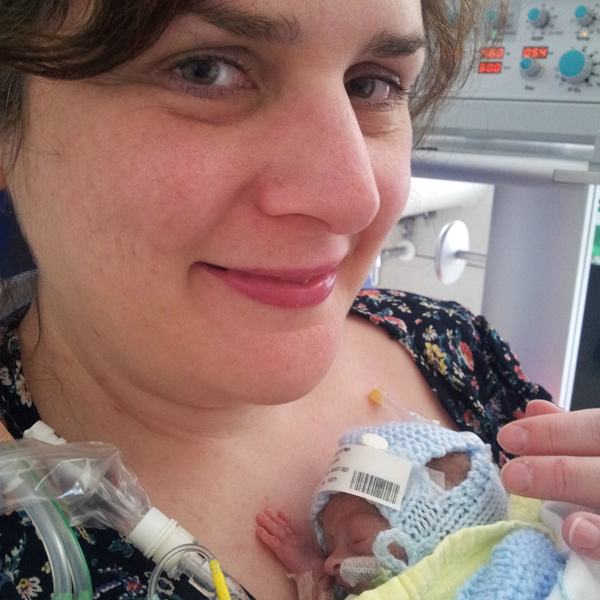Leigh of Headspace Perspective writes about mental health after birth trauma and baby loss
October 2016
I am proud of my son Hugo, and just like any mother I love to talk about him.
Ours is no ordinary story, however, and it does not have a happy ending.
It is a sad story of the death of a baby, and complicated by the lack of perinatal mental health support could have become a double tragedy.
When I tell the story of me and Hugo, I:
Talk about my pregnancy, cut so traumatically short at 24 weeks because of HELLP syndrome. A rare condition that I had never heard of.
Explain that the lives of me and my unborn baby were threatened; of the confusion of waking up in intensive care after the Caesarean under general anaesthetic.
Utter the words I so hate: that Hugo sadly died at the age of 35 days because he was too small, and premature.
Describe how after returning home (we had been in a specialist hospital two hours away from home) we felt cast adrift. Having to find our own way in a world that had fallen apart.
Sketch a verbal picture of a future not lived, hopes and dreams gone.
Tell of the many phone calls I had to make to various agencies, of the number of times I had to explain my long and complicated story (that I didn’t completely understand myself) to kind strangers, none of whom were able to help me.
Speak of the frustration of being under the care of secondary mental health services who told me that as I hadn’t planned my own suicide I was not a priority for them, but the local wellbeing service wouldn’t see me either because I was with secondary mental health. Not ill enough for one service, but too ill for another.
With deep sadness recount the deep loneliness, the feeling of isolation, the darkness and despair of the worst days that feel like they will never, ever get better.
Recount the sorry tale of the consultant psychiatrist who told me that “God will give me another baby.”
Tell another sorry tale, of the consultant gynaecologist who knew I had experienced the death of my baby, who lacked any sort of compassion, who treated me like another patient on the production line and who blamed the poor appointment on my lack of engagement (with an implication that it was my fault because I am a nutcase).
Describe how it took a breakdown, when I had finally run out of steam, to get me on the road to getting the care that I needed. A telephone assessment with a kind, compassionate woman who was able to make a diagnosis of post-traumatic stress disorder and name me as a priority as perinatal (the lack of a baby had confused other services).
Illustrate how my battles to get support meant some very dark times that sometimes had me feeling like I had had enough, that my poorly head would finish off what HELLP syndrome had started. I explained that these same battles had led me to creating for myself some coping strategies that mean I am still here, but that I know are unhelpful for the longer term.
Talk about how special friends and family were so understanding and kind during the darkest times. How their patience made us feel that we were always loved, and how their mentioning Hugo provides wonderful reassurance that he will never be forgotten.
Observe how ‘the system’ needs improvement in many areas, and there needs to be consideration for mothers who do not take their baby home: they do not see a health visitor, and are therefore excluded from so much of the postnatal system.
Bereaved parents suffer enough with the death of their baby, and the loss of their futures.
Bereaved parents need support. We need kindness, understanding and empathy, not platitudes, awkwardness, and blank looks.
We will never forget our babies. We will never fully recover from our loss. But with the right support, we can move forward.
Read more from Leigh at her blog, Headspace Perspective.
Read more 7 voices for 7 days
-
Read more about 'I talk about my losses whenever I can because I know not everyone feels able to 'Ectopic pregnancy stories
I talk about my losses whenever I can because I know not everyone feels able to
-
Read more about 'We were offered scan photos after losing our baby, a small gesture that meant so much 'Miscarriage stories
We were offered scan photos after losing our baby, a small gesture that meant so much
More information on baby loss
-
Read more about 'Support for siblings after a neonatal death '
Support for siblings after a neonatal death
-
Read more about 'Pregnancy after neonatal loss '
Pregnancy after neonatal loss
-
Read more about 'Coping with grief after neonatal loss '
Coping with grief after neonatal loss
-
Read more about 'Supporting each other as a couple after a neonatal loss '
Supporting each other as a couple after a neonatal loss

